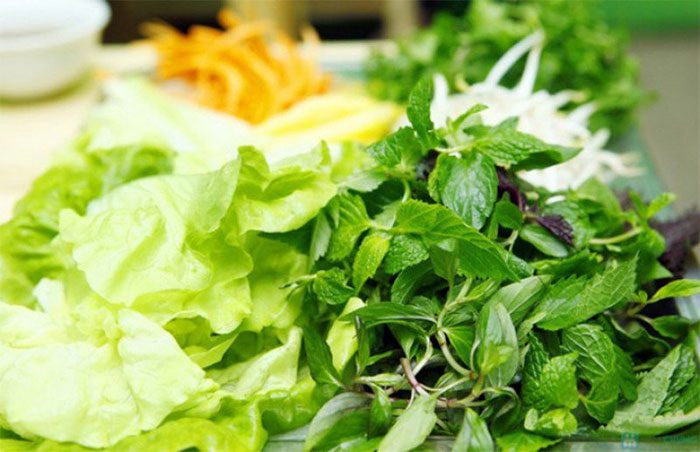Raw and undercooked food is a favorite for many people. However, according to experts, this eating habit poses significant health risks.
According to Professor Nguyen Van De, former Head of the Parasitology Department at Hanoi Medical University, uncontrolled eating habits can lead to serious health consequences. In particular, consuming raw or undercooked foods carries a high risk of contracting parasitic diseases.
The health risks associated with raw and undercooked foods have been extensively warned about, yet many remain complacent. During patient consultations, Professor De has encountered individuals who, despite being infected with parasites, still do not believe it was due to consuming raw or undercooked foods.
Additionally, Professor De points out that certain foods commonly consumed by Vietnamese people, such as raw vegetables, have a high risk of parasite contamination. This is a very difficult habit for many Vietnamese to break. Even if vegetables are grown in clean conditions, they can still be at risk of parasite contamination. Washing or soaking them thoroughly may help to some extent but does not completely eliminate parasites.

Be cautious when eating raw vegetables due to the high risk of parasitic infection. (Photo: Internet)
According to Professor De, terrestrial raw vegetables such as basil, lettuce, and salad greens are easily contaminated with dog and cat roundworms, pig or cattle tapeworms, and eel worms. For aquatic vegetables like water celery, water spinach, and knotweed, there is a risk of liver fluke infection.
During the upcoming holiday season, with gatherings and travel leading to increased dining out, experts also advise against consuming raw dishes made from meat or fish. For instance, habits like eating raw fish salad, live fish, raw shrimp, and blood pudding are all associated with a high risk of liver fluke and lung fluke infections.
Popular Dishes That Require Caution
Professor De notes that in addition to the aforementioned dishes, one must be cautious about other favorites such as beef or veal with lime juice, blood pudding, pig bile, fermented meat, and nem thính (Vietnamese rice paper rolls). All these dishes carry a risk of parasitic infections.
Consuming undercooked pork or beef that may contain larvae from the pig tapeworm or beef tapeworm can lead to these parasites entering the body and causing serious health issues.
“I have encountered patients with brain infections caused by pig tapeworms due to consuming blood pudding and undercooked meat. Some patients had hundreds of pig tapeworm larvae throughout their muscles, causing their bodies to appear pale,” Professor De warns.
Parasitic infections are not immediately life-threatening. However, if not diagnosed or treated properly, they can lead to severe consequences.
To prevent diseases caused by parasites, the best approach is to avoid consuming raw or undercooked foods, including raw vegetables. Additionally, it is essential to choose safe foods that are free from diseases or signs of contamination.
Preventing Parasitic Diseases
The Food Safety Authority recommends that foodborne illnesses caused by parasites can be effectively treated and prevented.
To avoid parasitic infections, especially through food, individuals should take the following actions:
- Maintain environmental hygiene, ensure clean water sources, and manage waste properly;
- Ensure cleanliness in dining areas, kitchens, and food preparation and storage facilities;
- Practice personal hygiene and wash hands regularly;
- Avoid using fresh manure to fertilize vegetables or free-range fish and pigs;
- Control flies, mosquitoes, and cockroaches, which can spread pathogens.
Moreover, everyone should adhere to the 10 golden rules for safe food preparation, which include:
- Choose safe food;
- Cook food thoroughly;
- Consume freshly cooked food immediately;
- Store cooked food carefully;
- Reheat food thoroughly before consumption;
- Avoid cross-contamination between raw and cooked foods;
- Always keep hands clean during food preparation;
- Keep preparation surfaces and kitchens dry and clean;
- Protect food from insects, rodents, and other animals;
- Use hygienic water sources.
NASA’s Mars rover sends back surprising images


















































